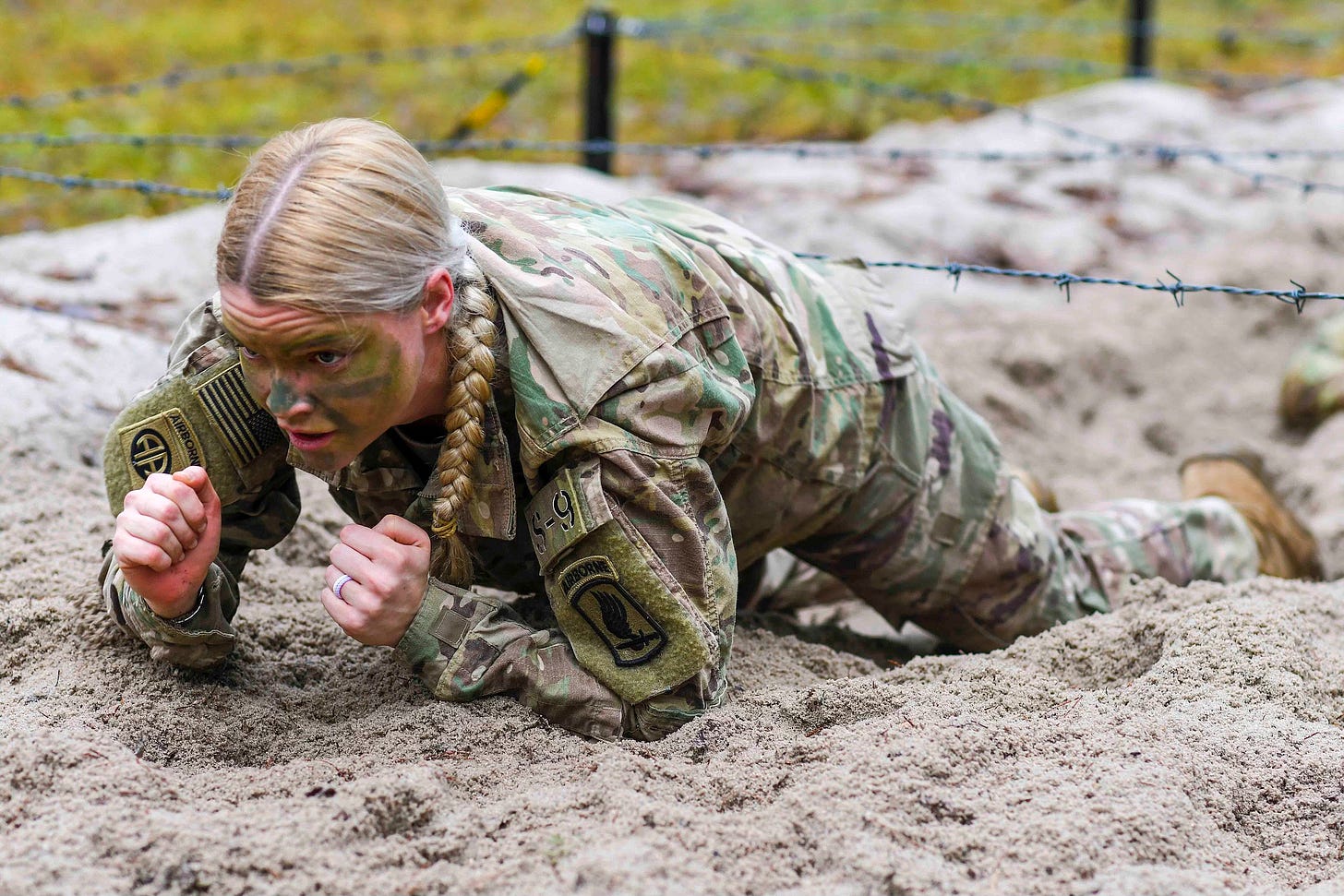
Content warning: this podcast discusses sexual assault and other forms of violence.
We begin this episode with Pramila Patten, the United Nations Special Representative on Sexual Violence in Conflict. She is discussing an international investigation of October 7, 2023, when Hamas terrorists stormed over Israel’s border and triggered the current and devastating war in Gaza.
The most damaging attack since the 1948 war, more Israelis were killed in a single event than at any time since the Holocaust. Hamas fighters killed 695 civilians (36 of whom were children), 71 foreign nationals, and 373 members of the Israeli Defense Forces (IDF). The attackers took around 250 hostages, which included at least thirty children and several dozen contract workers from countries other than Israel. Thousands were wounded.
Within a week, Israel initiated a terrifyingly violent attack designed to destroy Hamas, a military force embedded in a civilian population. By October 13, experts predicted the humanitarian catastrophe that has since unfolded. By the end of January 2024, the civilian infrastructure, layered on top of thousands of miles of Hamas military tunnels, was between 50 and 60% damaged or destroyed. Hamas claims that over 30,000 Palestinians, the majority of them noncombatants, have been killed. As I record this podcast, Israeli forces are planning to move over a million sick, injured, and starving Palestinian refugees out of Rafah, in southern Gaza, to pursue the elimination of Hamas there as well.
I want to note that, while we all deplore unbridled violence, Israel’s strategy is not unique, and it is frequently used in places where insurgent fighters are not fully embedded in urban infrastructure. Carpet bombing civilians was invented in World War II, and the United States destroyed two Japanese cities with nuclear weapons, causing generational suffering. So-called “surgical” strikes were used by the US in both Iraq wars, bombing designed to deny the state access to water and power, and which killed civilians immediately and over time. Russian dictator Vladimir Putin pursued the strategy of destroying entire cities, along with cultural centers, hospitals, and schools, in Chechnya. In Ukraine, Russian missiles continue to pound civilians and civilian infrastructure far from the front. Bashar al-Assad, the authoritarian President of Syria, also used these tactics against political dissenters in his own country.
Forcing states, or insurrectionist forces, to capitulate by killing, starving, torturing, and sexually assaulting civilians is not historically new or uncommon. That said, accusations of rape, sexualized murders and genital mutilation of women and children on October 7 have proven particularly, and unexpectedly, controversial. Despite eyewitness testimony and visual evidence, Hamas has denied these attacks, while some pro-Palestinian journalists in the United States have gone to great lengths to sow doubt about sexual violence, and to deny that it was part of the repertoire of terror that day.
Denialism and doubt serve an important propaganda role, to be sure. But fifty years of feminist scholarship also demonstrates that war does not occur without sexual assault, just as it cannot be prosecuted without civilian casualties. The idea that you can have war without rape, on all sides, is historically implausible.
And yet, to understand how war works, acknowledging and investigating these crimes is not where our conversation about gender and war can end. How men, women, and children experience violent conflict inspires, sustains, and promotes war. Women are not just the passive victims of violence, they are the ones who give birth to soldiers, become soldiers, support military operations, and care for the wounded—often for life. Men are raped. Palestinian mothers and fathers, like women in conflict zones everywhere, currently care for and feed families in reduced, terrifying, and exposed circumstances. Women are counted upon by military authorities to do the work left behind by men who fight; and to do public grieving that supports the continued recruitment of soldiers and the reproduction of patriotism. Women make the visible sacrifices that prop up masculine aggression and nationalist conflict.
For me, one of the most powerful feminist thinkers about violence in international relations is Cynthia Enloe, a political scientist and feminist theorist at Clark University. An award-winning scholar, she is the author of fifteen books that analyze militarism, war, and colonialism through the lens of feminist theory. And when the Middle East exploded on October 7, I reached for her most recent volume, Twelve Feminist Lessons of War(University of California Press, 2023.) Each lesson is easily converted into a question that the reader could ask about any conflict, anywhere, at any moment in history. And as Enloe emphasizes, these questions lead us back to the same place: we are all complicit in the social militarization that sustains war.
Show notes:
One of the central concepts of Cynthia Enloe’s work is militarization, and the ways it is embedded in ordinary objects, culture, and fashion. You can read more about the long history of this phenomenon in David Fitzgerald, Militarization and the American Century: War, the United States and the World since 1941 (Bloomsbury, 2022).
Claire and Cynthia discuss the ways in which women must participate in war in order for wars to succeed. To learn more about how women’s participation has escalated over time, see Leisa Meyer, Creating G. I. Jane (Columbia University Press, 1997) and Carol Cohn, Women and Wars: Contested Histories, Uncertain Futures (Polity, 2012).
As Cynthia points out, women have a long history of using their political authority as mothers on behalf of, but also against, militarism. To read more about war and maternal authority, see Amy Swerdlow in Women Strike for Peace: Traditional Motherhood and Radical Politics in the 1960s (University of Chicago, 1993).
Claire highlights Cynthia’s theme of damaged masculinity. To read more about repairing men after war, see chapter 1 of historian David Serlin’s Replaceable You: Engineering the Body in Postwar America (University of Chicago Press, 2004).
The news item about women in the 10th mountain division at Fort Drum being deployed as combat soldiers is from a March 6, 2020, episode of the Today show on NBC.
Claire notes that sexual assault is a constituent aspect of military service and war. Historian Mary Louise Roberts has written about the many ways “romance” motivates men to fight in What Soldiers Do: Sex and the American GI in World War II France (University of Chicago Press, 2013). Cynthia points us to the work of Elizabeth Wood, Crosby Professor of the Human Environment and Professor of Political Science, International and Area Studies at Yale University. You can read more about Wood’s research here.
Cynthia argues that the cost of war is difficult to tally because costs do not end when a peace is secured; for a model of how we might think about that, she points listeners to the Costs of War Project at Brown University.
Interested in what Palestinian and Israeli feminists are doing right now? See Siobhan Byrne, “How women in Israel and Palestine are pushing for peace — together,” The Conversation, October 17, 2023; and the organization Bat Shalom.
You can download this podcast here or subscribe for free on Apple iTunes, Spotify, Google Podcasts, or Soundcloud. You can also keep up with Political Junkie content and watch me indulge my slightly perverse sense of humor on Instagram, Threads, and TikTok. And you can:
If you enjoyed this episode, why not try:
Episode 44, Inventing the Police: A conversation with historian Matthew Guariglia about "Police and the Empire City: Race and the Origins of Modern Policing in New York."
Episode 43, Where In the World Is Merze Tate? A conversation with historian Barbara Savage about freedom, independence, and her new biography, "Merze Tate: The Global Odyssey of a Black Woman Scholar."
Episode 21, A World To Win: Talking with socialist feminist Nancy Fraser about "Cannibal Capitalism: How our System Is Devouring Democracy, Care, and the Planet – and What We Can Do About It."
And here’s a bonus: all new annual subscriptions include a free copy of my book about political media, Political Junkies: From Talk Radio to Twitter, How Alternative Media Hooked Us on Politics and Broke Our Democracy (Basic Books, 2020.)












Share this post